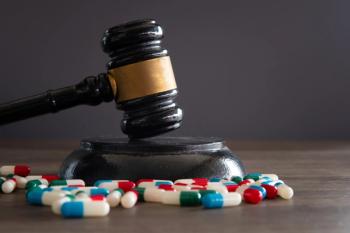
Clinical Skills Help Pharmacists Emphasize Their Value to Patients
Pharmacists go beyond merely dispensing drugs to provide higher levels of care.
In today’s fast-paced health care landscape, where most patients spend 15 minutes in their physician’s office maybe 4 times a year, the pharmacist, who is the most accessible health care professional, is leaned on more and more to triage patients needing a higher level of care.
For instance, pharmacists provide prescription therapy directed at clot prevention. Today it is rather commonplace to see triple therapy consisting of an anticoagulant and 2 antiplatelets (aspirin/clopidogrel), depending on the source of the clot. I drill into my physician assistant students the differences between antiplatelet therapy for “white clots” and anticoagulant therapy for “red clots.” If a patient needs protection from deep vein thrombosis and pulmonary embolism, it is commonplace to use aspirin/clopidogrel plus aspirin.
Last month, I received a call from the wife of 1 of my patients. She said her husband, Steve, was given a prescription for apixaban (Eliquis), and she was wondering about the drug’s potential adverse effects (AEs). I asked, “Is there anything in particular that he is experiencing?” She replied,“Is shortness of breath an adverse effect of Eliquis therapy? He can hardly get off the couch.”
I didn’t even have to pull a reference or the package insert. I said, “You get him to the hospital NOW, preferably 10 minutes ago.”
She took my advice and took him to the emergency department immediately. They whisked him to the X-ray department and did a CT scan that showed bilateral pulmonary emboli. She called back later to tell me of their findings and that I had saved his life. A week later, Steve came to the pharmacy and told me he slipped while fishing, developed a blood clot in his lower left leg, and was put on anticoagulant therapy. He also confirmed that it was my forceful advice that got him from the couch to the emergency department.
Although we are the experts in drug therapy, this case illustrates how we must also excel in disease state management. Pumping out 40 prescriptions an hour with minimal tech help does not lend itself to an optimal level of patient care.
I doubt that we made $10 on the Eliquis prescription, which has a wholesale acquisition of $470. After the direct and indirect remuneration fees, we probably lost a few dollars. Pharmacists, the frontline health care professionals who are the most accessible and provide advice for free, are valuable members of the health care team. Just ask Steve and his wife.
Newsletter
Pharmacy practice is always changing. Stay ahead of the curve with the Drug Topics newsletter and get the latest drug information, industry trends, and patient care tips.























